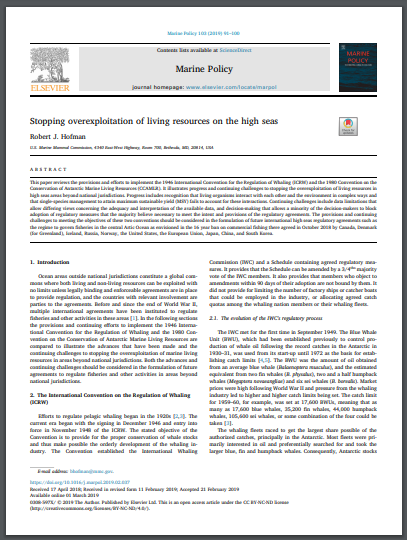
This paper reviews the provisions and efforts to implement the 1946 International Convention for the Regulation of Whaling (ICRW) and the 1980 Convention on the Conservation of Antarctic Marine Living Resources (CCAMLR). It illustrates progress and continuing challenges to stopping the over exploitation of living resources in high seas areas beyond national jurisdictions. Progress includes recognition that living organisms interact with each other and the environment in complex ways and that single-species management to attain maximum sustainable yield (MSY) fails to account for these interactions. Continuing challenges include data limitations that allow differing views concerning the adequacy and interpretation of the available data, and decision-making that allows a minority of the decision-makers to block adoption of regulatory measures that the majority believe necessary to meet the intent and provisions of the regulatory agreements. The provisions and continuing challenges to meeting the objectives of these two conventions should be considered in the formulation of future international high seas regulatory agreements such as the regime to govern fisheries in the central Arctic Ocean as envisioned in the 16 year ban on commercial fishing there agreed in October 2018 by Canada, Denmark (for Greenland), Iceland, Russia, Norway, the United States, the European Union, Japan, China, and South Korea.














